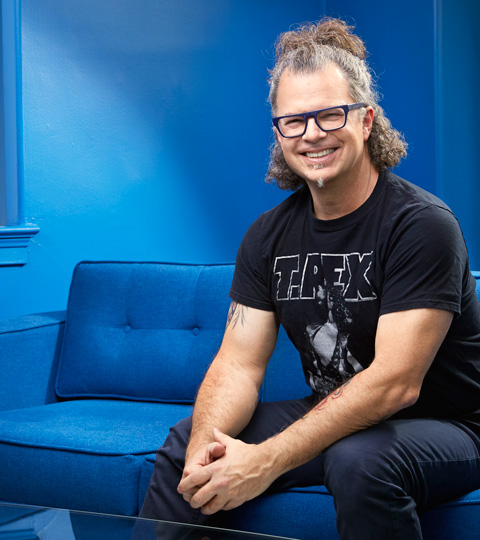About Dr. David Cramb
Self-professed ‘laser jock’ and ‘nano geek’, Dr. David Cramb is a biophysical chemist for whom the thrill of discovery still runs strong. As Dean of the Faculty of Science at Toronto Metropolitan University since 2018, David is committed to interdisciplinary research and innovative collaborations. As a musician, researcher and teacher in both the arts and sciences, David has led cross-disciplinary teams of researchers in science, medicine, engineering, education and the arts, as well as industrial partners and practicing clinicians. These collaborations have spanned many institutions and crossed borders into the U.S. and Europe. To date, David has secured grants from NSERC, CIHR, CFI and industry partners totalling more than $4 million.
Prior to joining Toronto Metropolitan University in 2018, David was head of the Department of Chemistry at the University of Calgary (1997-2018). There, he played a central role in developing the Faculty of Science’s strategic plan, and in establishing two Canada Research Chair positions focusing on nanobiomedicine and creativity in post-secondary STEM education. In his research, Cramb studies the behaviour of nanoparticles for biomedical applications, with specific focus on the use of nanomaterials for more effective diagnosis and treatment of diseases such as cancer.


Career Highlights
- Dean, Faculty of Science, Toronto Metropolitan University (2018-present)
- Head, Chemistry, University of Calgary (2012-2018)
- Director, Nanoscience Program, University of Calgary (2008-2018)
- Fellow, Canadian Chemical Society
- Thermo-Fisher Prize in Spectroscopy (2010)
- Teaching Excellence Award, University of Calgary (2014)
- National AstraZeneca Award in Chemistry (2001)
Chair Positions
- Collaborative Health Research Projects (NSERC/CIHR)
- Canadian Council of University Chemistry Chairs
- Research and Development Policy Committee (University of Calgary)
- Physical Division of CSC
Training of Highly Qualified Personnel
- 10 postdoctoral scholars
- 25 graduate students (including 10 PhD, 15 MSc)
- 70 undergraduate students

